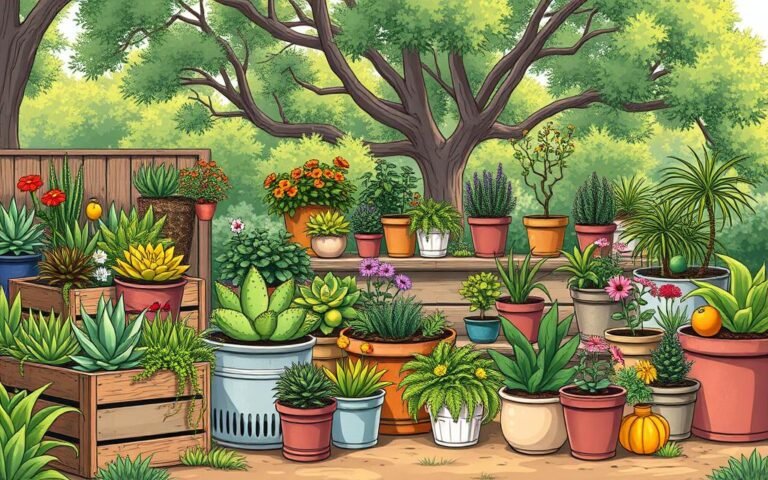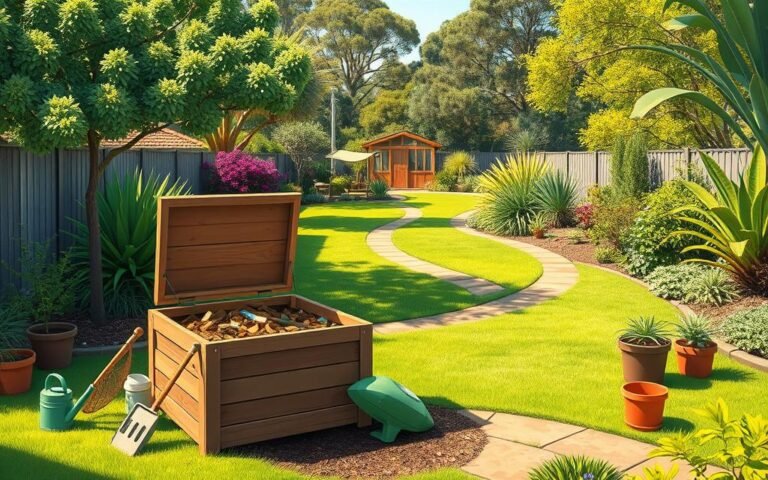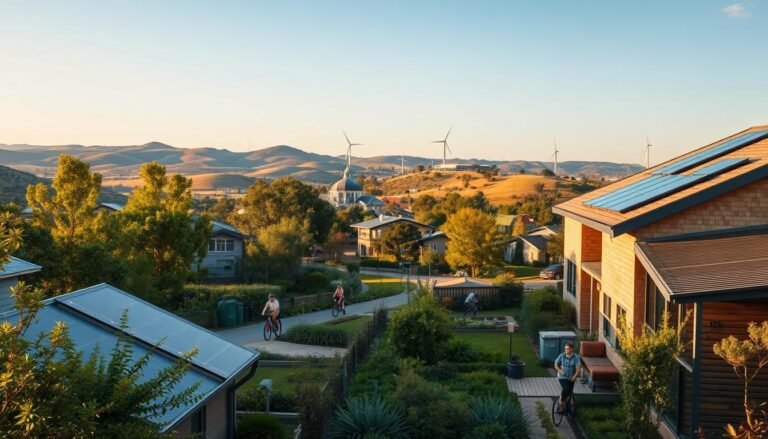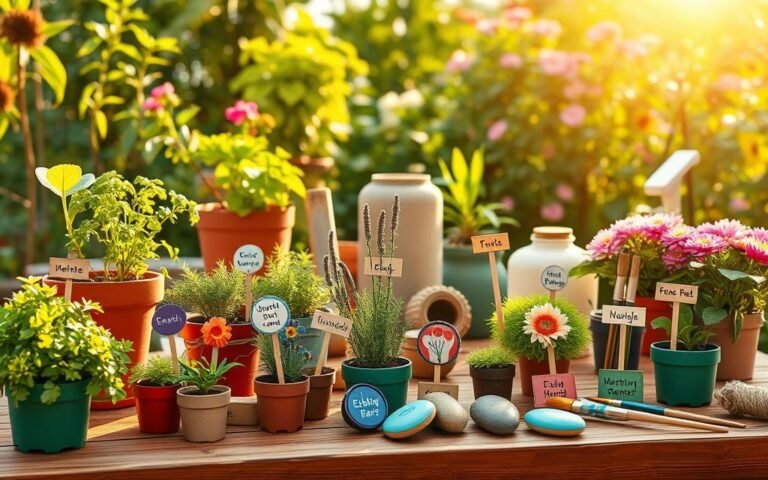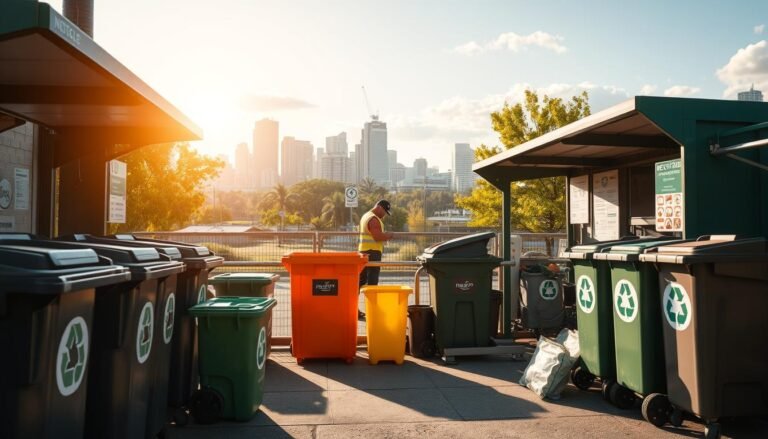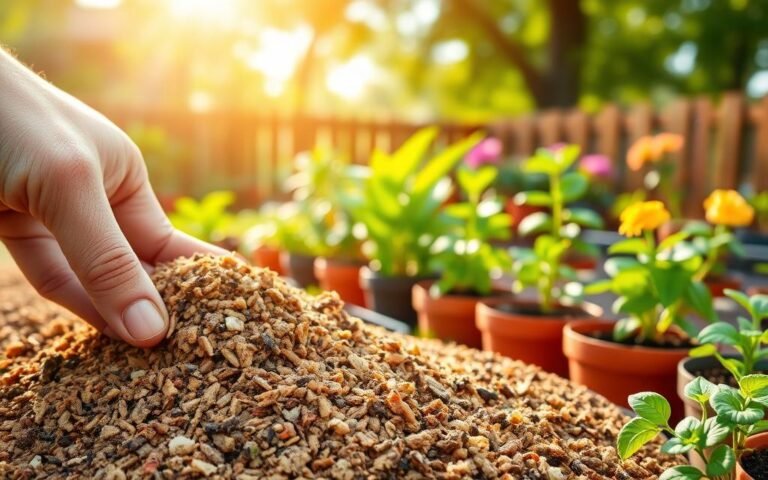Australia is taking a significant step towards reducing waste with its plastic ban coming into effect by 2025. As part of this initiative, several single-use plastic items will be phased out to minimize environmental harm.
From September 1, 2025, certain items will be banned, including pre-filled plastic soy sauce containers and plastic cutlery attached to food containers. For more information on the banned items, you can visit the Government’s guideline on 2025 bans.
As a result, Australians will need to adapt to using alternative products. This change aims to reduce the country’s environmental footprint and promote a more sustainable lifestyle.
Key Takeaways
- Pre-filled plastic soy sauce containers will be banned from September 1, 2025.
- Plastic cutlery attached to food containers will be phased out.
- Alternative products will be needed to replace banned items.
- The ban aims to reduce Australia’s environmental footprint.
- A more sustainable lifestyle is expected to be promoted through this initiative.
The Plastic Crisis and Australia’s Response
With the plastic ban australia2025, Australia aims to significantly reduce plastic waste and promote sustainable alternatives to plastics. The country’s waterways are among the most affected by plastic pollution, with millions of tons of plastic waste entering the environment each year.
The Scale of Plastic Pollution in Australian Waterways
Australia’s rivers and oceans are heavily polluted with plastic debris, harming marine life and contaminating the food chain. Studies have shown that plastic pollution in Australian waterways is not only an environmental issue but also a significant economic concern, affecting tourism and fishing industries.
Government Action and the National Plastic Plan
In response to the plastic crisis, the Australian government has launched the National Plastic Plan, a comprehensive strategy aimed at reducing plastic waste and improving recycling rates. The plan includes a phased approach to banning single-use plastics and promoting the use of sustainable alternatives.
| Action | Description | Timeline |
|---|---|---|
| Phase 1: State-Level Bans | Implementation of bans on single-use plastics at the state level | Already Implemented |
| Phase 2: National Rollout | National implementation of plastic bans and promotion of sustainable alternatives | 2023-2024 |
| Phase 3: Final Deadline | Complete implementation of the plastic ban australia2025 | 2025 |
By understanding the scale of the plastic crisis and the government’s response, Australians can better prepare for the changes ahead and contribute to a more sustainable future.
Plastic Ban Australia2025: Complete Timeline and Implementation
The Australian government’s push to eliminate single-use plastics by 2025 is gaining momentum, with a phased implementation plan already underway. This timeline is crucial for understanding when different types of plastic items will be banned and how businesses and consumers can prepare.
Phase1: Already Implemented State-Level Bans
Several Australian states have taken the lead by implementing their own plastic bans ahead of the national rollout. For instance, South Australia and Western Australia have already prohibited single-use plastic bags, straws, and cutlery. These state-level bans serve as a precursor to the national ban, allowing businesses and consumers to adjust to the new regulations.
Phase2:2023-2024 National Rollout
The national rollout of the plastic ban is scheduled to begin in 2023, with a focus on phasing out lightweight shopping bags, straws, and certain types of food packaging. By 2024, more items will be added to the list of banned plastics, including expanded polystyrene products and oxo-degradable plastics.
Phase3: The2025 Final Deadline
By 2025, all single-use plastic items not already banned will be eliminated, marking a significant milestone in Australia’s fight against plastic pollution. This final phase will ensure that the country is on track to meet its environmental goals.
Enforcement and Penalties
To ensure compliance, the government will implement a system of fines and penalties for businesses and individuals found using banned plastic items. As one official stated,
“We are committed to making Australia a plastic-free country, and we will work with businesses and communities to achieve this goal.”
The exact penalties will vary by state, but businesses can expect significant fines for non-compliance.
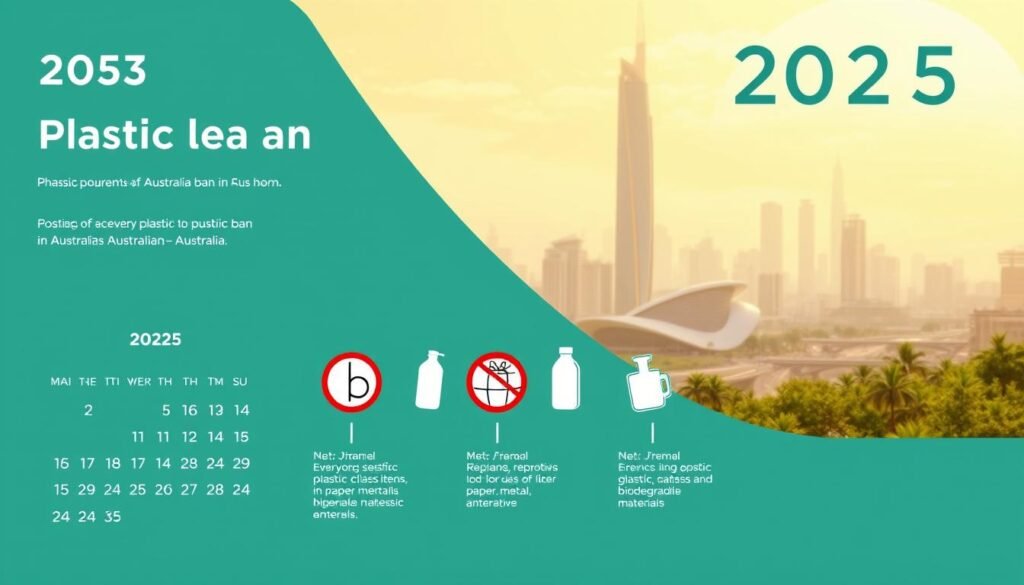
Single-Use Plastic Items Being Banned
As Australia moves towards a plastic-free future, several single-use plastic items are being phased out. The Australian government has identified specific products that contribute significantly to plastic pollution and has set a timeline for their elimination.
Lightweight Shopping Bags and Produce Bags
One of the primary targets of the plastic ban is lightweight shopping bags and produce bags. These bags are used once and then discarded, often ending up in landfills or as litter in the environment. Reusable bags made from sustainable materials are recommended as alternatives.
Straws, Stirrers and Cutlery
Single-use straws, stirrers, and cutlery are also being banned due to their high usage and disposal rates. Metal or bamboo straws and biodegradable cutlery are among the alternatives being promoted.
Plates, Bowls and Food Containers
Plates, bowls, and food containers made from plastic are being phased out in favor of more sustainable options like compostable containers or those made from natural materials.
Expanded Polystyrene Products
Expanded polystyrene products, commonly used in packaging and food service, are also targeted for elimination due to their non-biodegradable nature and environmental impact.
Exemptions for Medical and Accessibility Needs
While the ban is comprehensive, there are exemptions for certain medical and accessibility needs. For instance, some single-use plastics may still be used in medical settings where they are essential for patient care. As noted by the Australian Government Department of the Environment and Energy, “exemptions will be considered on a case-by-case basis, ensuring that the needs of all Australians are taken into account.”
“The plastic ban is a significant step towards reducing Australia’s plastic waste and promoting a more sustainable future.”
The transition to a plastic-free Australia requires the cooperation of businesses, consumers, and government agencies. By understanding which single-use plastic items are being banned and exploring sustainable alternatives, Australians can contribute to a cleaner and healthier environment.
Plastic Packaging Materials Facing Elimination
The Australian government’s push to reduce plastic waste includes eliminating specific plastic packaging materials by 2025. This move is part of the broader plastic ban Australia 2025 initiative, aimed at minimizing plastic pollution and promoting sustainable practices across the country.
Problematic Plastic Packaging Types
Several types of plastic packaging are being targeted for elimination due to their environmental impact. These include multi-layered packaging, which is difficult to recycle, and certain types of plastic wrapping used in the food industry.
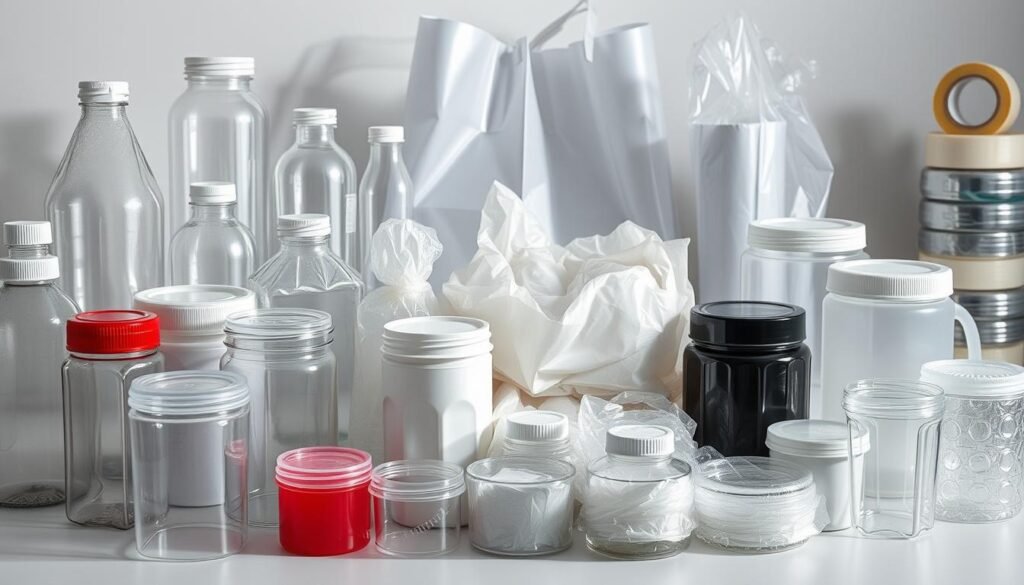
Microbeads in Personal Care Products
Microbeads, once commonly used in personal care products like face wash and toothpaste, are being phased out. These tiny plastic particles were found to contribute significantly to microplastic pollution in waterways.
Oxo-degradable Plastics and False “Biodegradable” Claims
Oxo-degradable plastics, which break down into smaller pieces rather than truly biodegrading, are also being eliminated. The government is cracking down on false “biodegradable” claims, ensuring that products marketed as environmentally friendly truly are.
Australia’s Packaging Targets for 2025
By 2025, Australia aims to make significant reductions in plastic packaging waste. This includes increasing the use of sustainable alternatives to plastics and improving recycling rates. Businesses are encouraged to adopt compostable or reusable packaging options.
The transition to a plastic-free future requires cooperation from both businesses and consumers. By understanding the changes coming in 2025, Australians can prepare for a more sustainable future.
Food Service Industry: Banned Items and Alternatives
The food service industry in Australia is on the cusp of a significant transformation as the plastic ban approaches in 2025. Restaurants, cafes, and food delivery services will be impacted by the new regulations, requiring them to adopt sustainable alternatives to banned plastic items.
Restaurant Takeaway Containers and Packaging
Takeaway containers and packaging are among the items being phased out. Restaurants will need to switch to biodegradable or compostable containers made from materials like plant-based bioplastics or paper pulp.
Café Coffee Cups, Lids and Cold Drink Cups
Cafes will be affected by the ban on single-use coffee cups, lids, and cold drink cups. Alternatives include reusable cups and cups made from sustainable materials like bamboo or recycled paper.
Food Delivery Packaging Solutions
Food delivery services will also need to adapt by using sustainable packaging solutions. This could include compostable packaging or innovative materials like mushroom-based packaging.
BYO Container Policies and Health Regulations
Some businesses may adopt BYO (Bring Your Own) container policies, but they must comply with health regulations. A comparison of different container types is shown below:
| Container Type | Biodegradable | Compostable | Reusable |
|---|---|---|---|
| Plant-based Bioplastic | Yes | Yes | No |
| Stainless Steel | No | No | Yes |
| Bamboo | Yes | Yes | Yes |
By adopting sustainable alternatives, the food service industry can comply with the plastic ban and contribute to a more environmentally friendly future.
Household Products Affected by the Ban
The impending plastic ban in Australia is prompting a closer look at the plastic used in everyday household products. As part of the plastic ban australia 2025 initiative, various items are being phased out to reduce plastic waste.
Bathroom and Personal Care Items
Many bathroom and personal care products contain plastic, from microbeads in face wash to plastic packaging around toothbrushes. Alternatives such as bamboo toothbrushes and exfoliating products with natural ingredients are becoming increasingly popular as sustainable alternatives to plastics.
Kitchen and Cleaning Products
In the kitchen, plastic containers, cutlery, and cleaning product packaging are being targeted by the ban. Australians are turning to reusable bags, stainless steel cutlery, and cleaning products with minimal or biodegradable packaging as part of their sustainable alternatives plastics strategy.
Party Supplies and Celebration Items
Party supplies, including balloons, plastic tablecloths, and disposable cutlery, are also being affected. Eco-friendly alternatives like paper decorations and reusable partyware are gaining traction.
Plastic-Free Baby and Pet Products
Baby and pet products, such as plastic toys, baby bottles, and pet accessories, are being reevaluated. Parents and pet owners are seeking out sustainable alternatives plastics, including cloth nappies, wooden toys, and biodegradable pet products.
By embracing these changes, Australians can contribute to a significant reduction in plastic waste, aligning with the plastic ban australia 2025 goals.
Sustainable Alternatives to Banned Plastic Items
With the plastic ban Australia 2025 deadline approaching, Australians are turning to sustainable alternatives to replace banned plastic items. This shift is driving innovation in eco-friendly products, from biodegradable packaging to reusable household items.
Australian-Made Biodegradable and Compostable Options
Australian businesses are responding to the plastic ban by developing biodegradable and compostable alternatives. For instance, companies are producing biodegradable cutlery and compostable packaging made from plant-based materials like cornstarch or sugarcane. These products offer a sustainable solution for consumers looking to reduce their plastic usage.
| Product | Material | Benefits |
|---|---|---|
| Biodegradable Cutlery | Cornstarch | Decomposes quickly, reducing landfill waste |
| Compostable Packaging | Sugarcane | Composts at home, reducing greenhouse gas emissions |
Reusable Products Worth Investing In
Investing in reusable products is a practical way to reduce reliance on single-use plastics. Australians can switch to reusable shopping bags, stainless steel water bottles, and beeswax wraps for food storage. These products not only reduce waste but also offer long-term cost savings.
Natural Material Alternatives
Natural materials offer a sustainable alternative to plastic. For example, bamboo products are becoming increasingly popular for their durability and biodegradability. Other natural alternatives include glass containers for food storage and paper packaging for retail products.
Understanding Certification Labels and Greenwashing
When shopping for sustainable alternatives, it’s essential to understand certification labels. Look for products certified by reputable organizations, such as the Australian Composting Standards. Be wary of greenwashing – false or misleading claims about a product’s environmental benefits. Always check the product’s ingredients, packaging, and company claims to ensure they align with your values.
By embracing sustainable alternatives to banned plastic items, Australians can contribute to a cleaner environment and support businesses committed to sustainability.
Business Transition: How Australian Companies Are Adapting
The plastic ban in Australia is prompting businesses to rethink their packaging and products, driving a wave of sustainability. As companies adapt to the plastic ban australia2025 regulations, they are exploring innovative sustainable alternatives plastics to replace traditional plastic items.
Small Business Adaptation Strategies
Small businesses are finding creative ways to comply with the plastic ban. Many are switching to biodegradable packaging materials and reusable products. For instance, a small café in Melbourne has replaced plastic straws with paper straws and is now offering discounts to customers who bring their reusable cups.
“We’ve seen a significant increase in customer loyalty since making the switch to eco-friendly packaging. It’s not just good for the environment; it’s good for business,” said the café owner.
Major Australian Retailers’ Sustainability Initiatives
Major retailers are also making significant changes. Companies like Woolworths and Coles are committed to removing unnecessary plastic packaging and introducing sustainable alternatives plastics. Woolworths, for example, has eliminated single-use plastic bags and is transitioning to compostable packaging for some products.
| Retailer | Sustainability Initiative | Timeline |
|---|---|---|
| Woolworths | Eliminate single-use plastic bags | Already Implemented |
| Coles | Introduce compostable packaging | 2024 |
Cost Implications and Government Support
While adapting to the plastic ban can involve initial costs, many businesses are finding that sustainable practices lead to long-term savings. The Australian government is also providing support through grants and resources to help businesses transition.
Case Studies: Success Stories from Early Adopters
Several businesses have already successfully adapted to the plastic ban. For example, a boutique clothing store in Sydney switched to biodegradable packaging and saw a 20% increase in sales due to the positive environmental impact.
As Australia continues towards a plastic-free future, businesses that adapt quickly and embrace sustainable alternatives plastics are likely to thrive. By innovating and adopting eco-friendly practices, companies can not only comply with the plastic ban australia2025 but also contribute to a more sustainable future.
Consumer Guide: Preparing for the Plastic Ban
The countdown to a plastic-free Australia has begun, and it’s time for consumers to take action. As the 2025 deadline approaches, Australians can start making simple yet impactful changes to their daily habits.
Building Your Australian Plastic-Free Kit
Transitioning to a plastic-free lifestyle starts with the basics. Begin by assembling a plastic-free kit that includes:
- Reusable shopping bags made from sustainable materials
- A stainless steel or glass water bottle
- Beeswax wraps or reusable containers for food storage
- Metal or bamboo straws
Investing in these sustainable alternatives to plastics will significantly reduce your reliance on single-use plastics.
Shopping Habits to Change Now
To adapt to the upcoming banned items AU regulations, consumers need to rethink their shopping habits. Here are some tips:
- Choose products with minimal or biodegradable packaging
- Buy in bulk to reduce packaging waste
- Opt for products made from sustainable materials
Handling the Transition Period
The transition to a plastic-free lifestyle may seem daunting, but with the right support, it can be smooth. Look for community resources and support groups in your area.
Community Resources and Support Groups
Many local communities are forming groups to help individuals transition to a plastic-free lifestyle. These groups often share tips, organize clean-up events, and provide a network of like-minded individuals.
By taking these steps, Australians can not only comply with the upcoming plastic ban but also contribute to a more sustainable future.
Environmental and Economic Impact of the Plastic Ban
As Australia moves towards implementing a comprehensive plastic ban by 2025, the environmental and economic implications are becoming increasingly clear. The ban is expected to have a significant impact on reducing plastic waste and promoting sustainable practices across the country.
Expected Environmental Benefits for Australian Ecosystems
The reduction in plastic waste is anticipated to benefit Australian ecosystems significantly. With less plastic entering waterways and landfills, there will be a decrease in marine pollution and harm to wildlife. This move is expected to protect biodiversity and preserve natural habitats.
Economic Opportunities in the Sustainable Products Sector
The shift towards sustainable alternatives is likely to create new economic opportunities in Australia. The demand for biodegradable and compostable products is expected to rise, driving innovation and growth in the sustainable products sector.
Global Context: How Australia Compares to Other Countries
Australia is not alone in its efforts to combat plastic pollution. Many countries are implementing similar bans, and Australia’s initiative aligns with global movements towards sustainability.
Measuring Success: Tracking Plastic Reduction
To measure the success of the plastic ban, the Australian government will need to implement effective tracking mechanisms. This could involve regular audits of plastic waste, monitoring of plastic reduction targets, and assessment of the economic impact on businesses.
| Indicator | Pre-Ban | Post-Ban (Projected) |
|---|---|---|
| Plastic Waste | High | Reduced |
| Sustainable Products Market | Small | Growing |
Conclusion: Embracing a Plastic-Free Future in Australia
Australia is taking significant steps towards reducing plastic waste with the plastic ban australia2025. As outlined, various single-use plastic items are being phased out, including lightweight shopping bags, straws, and certain food packaging materials classified as banned items AU.
Transitioning to sustainable alternatives is crucial for minimizing environmental impact. Australian consumers can opt for reusable products, biodegradable materials, and innovative packaging solutions that align with sustainable alternatives plastics.
Embracing a plastic-free lifestyle not only benefits the environment but also fosters a culture of sustainability. By making conscious choices, Australians can significantly reduce plastic pollution and protect marine life.
As the plastic ban australia2025 comes into full effect, Australians can look forward to a cleaner, greener future. It’s a collective effort that requires the participation of individuals, businesses, and government entities working together towards a common goal.
